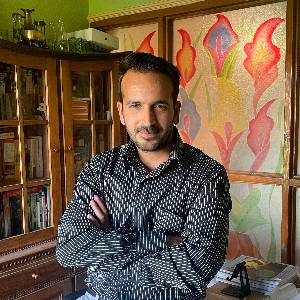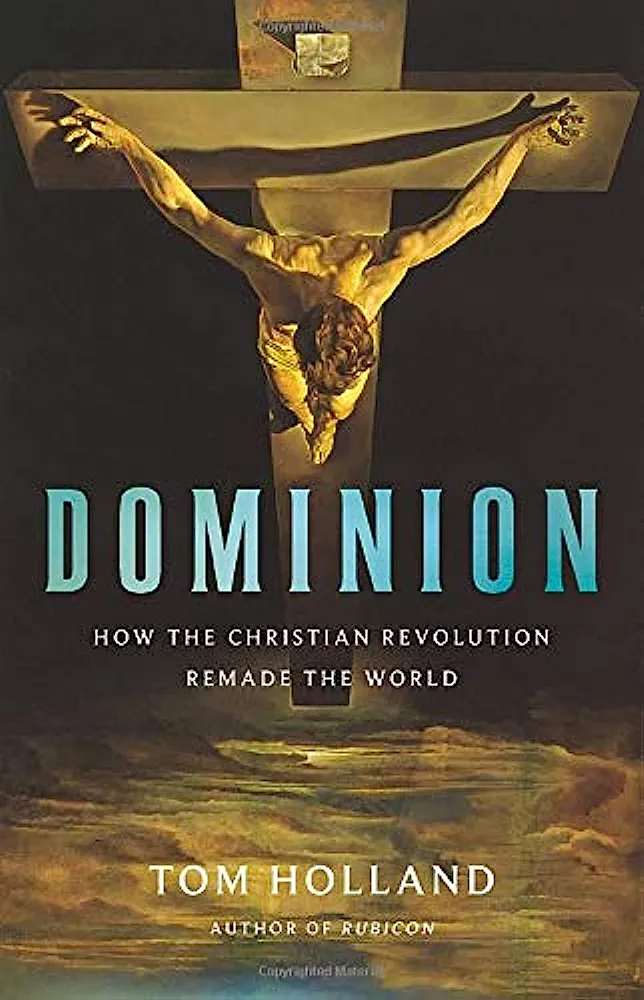“The history of all existing society is the history of class struggle.” Karl Marx’s profound view of human relationships became the defining narrative of the 20th century. The storm that Marxist ideas raised destroyed Russia’s well-established social institutions, including Christianity. But few people knew that the germs of the Russian revolution were instilled into human thinking by Christianity itself. That is, until we were taught by historian Tom Holland, who, in his deeply analytical 2019 book Dominion, presented an impressive study of the Western mind and how it was influenced by Christianity.
Before the coming of Christ, the Western world glorified the ancient Greek and Roman gods for their exceptional power, generosity, cruelty and sexuality. The Western world saw these virtues as images of divinity. Whether it was Zeus’s command of thunder and lightning or Poseidon’s rule over the sea, it was these incredible forces that filled the Western religious consciousness with awe and submission. To be divine by its very nature meant to be powerful. In such a society, it was the powerful who possessed a natural aura of holiness, while the vast majority of the weak and slaves were destined to be consumed by their desires or, at best, to be ignored in the seedy recesses of their society. ancient cities. This was ordained by the deity.
But with the coming (and martyrdom) of Christ a new concept of divinity arose. God Himself came down to live among the poorest, weakest and most servile people and die a death. The spark of divinity was first lit among ordinary mortals, and not among the strong and powerful. Divinity first consisted of poverty, servility, humility and meekness. For the first time, the deity did not reign over wars, famines and plagues, but gave a shameful death. Divinity lay not in the cherished ideal of revenge, but in turning the other cheek! He lay not in the luxurious, lush robes of the royal family, but in the modest, seamless robe of a prisoner.
And thus what had been obscured came into focus: the poor and landless became God’s chosen ones. A “rich man,” on the other hand, “will hardly enter the kingdom of heaven.” From this newfound dynamic of human relationships emerged all the values we hold dear—kindness, humanity, equality. The powerful began to realize their responsibility to care for the poor. The weak no longer needed to be expelled, but integrated into the mainstream of society, as brothers in faith and humanity. –– whether they were black slaves of the Caribbean or slum dwellers of Calcutta. Christianity wrapped them in a warm blanket of benevolence to protect them from the cold blizzard of natural law in which only the strong were destined to survive.
However, the significance of Christian values could only be appreciated in contrast. In 20th century Europe, the appearance of Christian humanity melted away with the advent of Nazism. Nazi ideology was cooked in a new age broth, flavored with ideas like those of Charles Darwin. His hypothesis of natural selection left no room for respect for weak creatures. Often nature very harshly found a way to weed them out and reproduce only the best breeds. This idea, applied to the human world, mocked Christian benevolence and glorified weakness. Instead, proponents of Social Darwinism saw weaker people – the disabled, homosexuals, gypsies and, of course, Jews – as a great disease of humanity that urgently needed to be eradicated. Suddenly the European order, shaped and held together by Christianity, disintegrated at the behest of Nazism and became a grotesque assault of crude natural science on the human sphere. The flames of the Holocaust engulfed Europe, and a disgusting stench rose from the death of long-held Christian values.
All of this was, to some extent, predicted by one of the most controversial thinkers in the Western world, Friedrich Nietzsche. When he proclaimed that “God is dead,” it attracted little attention and seemed almost like the ravings of a mad philosopher. However, the decline of religion will mean that the glue that has hitherto held together the strong and weak in the human Christian dynamic will also dry up. The desire to keep the seemingly poor in protection and honor was no longer strong. On the contrary, the weak now seemed like a burden, holding back human society and even draining the strength from the strong. Cartoons depicting Jews as blood-sucking parasites were an unmistakable reflection of these anxieties.
When it comes to giving a strong voice to those under his command, Tom Holland puts Christianity at the center. If the world has created a generous space for the seemingly weak, slow or disabled, it is because of the enduring legacy of Christianity. Dominion seems like a bit of an excavation project! Tom Holland deftly traces the evolution of human thinking, shaped by Christian values, which, against all odds, pushed us away from the cruel laws of nature towards a more humane, egalitarian and adaptive society. This book is one of the most comprehensive works of our time when it comes to understanding the age-old relationship between patricians and plebeians.
The views and opinions expressed in this article are those of the author..

Danish Zahoor is a political commentator and commentator on J&K. His areas of expertise include international relations, diplomacy, national security, peace and conflict studies.

